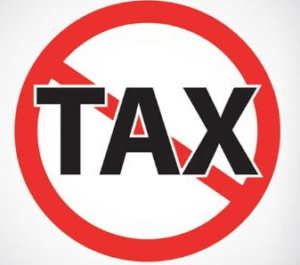
What Every Hotel Purchaser Should Request Before Closing
March 2018
Every year, hotels in markets across Texas change ownership. Purchasers customarily engage in detailed due diligence prior to the closing date, but unfortunately some buyers fail to secure an important document from the State of Texas and the local city and/or county government that can save them from unknown tax surprises.
State hotel occupancy taxes: The Texas Comptroller’s “Certificate of No Tax Due” serves as verification that the existing owner does not owe the State of Texas any tax revenues. This document assures any prospective buyer that the seller is up to date with all of its taxes owed to the State of Texas. Without securing the Certificate of No Tax Due, a hotel buyer runs the risk of assuming prior-owed taxes of the seller, up to the purchase price of the business.
Texas tax law provides that if a person who is liable for a tax sells a lodging property, the successor to the seller must withhold an amount of the purchase price sufficient to pay the amount of taxes due unless:
- The seller provides a receipt or statement from the Comptroller showing the tax has been paid or that no amount is due; or
- The purchaser requests and receives a Certificate of No Tax Due from the Comptroller
Local hotel occupancy taxes: Similar to the Comptroller’s process, the Texas Tax Code requires cities and counties to issue a “Certificate of No Tax Due.” Hotel purchasers should be sure to request this certificate from the city and county in addition to the certificate issued by the Texas Comptroller.
The applicable Texas law on point is found in the Texas Tax Code. That law states the purchaser of a hotel may request that the city or county issue a certificate stating that no tax is due or issue a statement of the amount required to be paid before a certificate may be issued. The city or county shall issue the certificate or statement not later than the 60th day after the date that the person receives the request. If the city or county fails to issue the certificate or statement within the 60 day period, the purchaser is released from the obligation to withhold the purchase price or pay the amount due.
Prospective buyers should obtain these certificates before completing the purchase of a property. Otherwise, an unsuspecting buyer could end up with liability for taxes owed to the State of Texas or the local government by the previous owner. The most common examples of potential tax liabilities in the lodging industry involve sales taxes and hotel occupancy taxes.
Either the purchaser or seller of the lodging property can request the Certificate of No Tax Due. Typically, a request should include the seller’s 11-digit Texas taxpayer number, name of business being sold, requester’s contact information (including name, telephone number, fax number and address), and name of purchaser. There is no charge for the certificate, and one of three results will be sent in writing:
- a Certificate of No Tax Due if the business does not owe any tax;
- a letter explaining why a Certificate of No Tax Due could not be issued; or
- a notification of audit results if there was an audit.
The request must be submitted in writing and can be sent via mail, fax, or email.
If you plan to buy a lodging property in Texas, be sure to contact the Comptroller’s office and the city and county government and request a Certificates of No Tax Due. Failing to do so makes you (the purchaser) liable for any past due hotel occupancy taxes and fees, plus any interest and penalties that are owed by the business.
For more detailed information on submission of a request for a Certificate of No Tax Due, you may call the Texas Comptroller’s Office at 1-800-344-7916 or email cntd@cpa.texas.gov.
Additionally, THLA’s legal staff is happy to assist and answer further questions. You may contact our office at (512) 474-2996 or by email at news@texaslodging.com.

